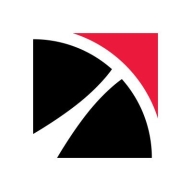


Trustwave Next Generation Firewall and Check Point Quantum Force (NGFW) are competing in the realm of robust security solutions. Check Point typically has the edge due to its extensive feature set, despite its higher costs.
Features: Trustwave offers integrated threat intelligence, data loss prevention, and competitive pricing. Check Point provides advanced threat prevention, cloud integration, and capabilities suited for complex environments, which often tip the scale in its favor.
Ease of Deployment and Customer Service: Trustwave is known for its straightforward deployment model and responsive customer service, which aids in seamless implementation. Check Point stands out with more customizable deployment options and broader technical support, appealing to organizations that require tailored solutions.
Pricing and ROI: Trustwave typically has lower setup costs and a quicker ROI due to its affordable pricing structure. Check Point requires a higher initial investment, but its extensive capabilities justify the cost over time, especially in environments needing advanced security features.
| Product | Market Share (%) |
|---|---|
| Fortinet FortiGate | 20.7% |
| Check Point Quantum Force (NGFW) | 2.8% |
| Trustwave Next Generation Firewall | 0.1% |
| Other | 76.4% |


| Company Size | Count |
|---|---|
| Small Business | 350 |
| Midsize Enterprise | 129 |
| Large Enterprise | 187 |
| Company Size | Count |
|---|---|
| Small Business | 131 |
| Midsize Enterprise | 98 |
| Large Enterprise | 195 |
Fortinet FortiGate excels in providing integrated VPN, firewalling, and Unified Threat Management (UTM) with centralized management and high availability. It supports remote access and comprehensive threat protection, making it a preferred choice for securing networks.
Fortinet FortiGate offers a robust security platform with features such as strong intrusion prevention, application control, and web filtering. Its integration with Active Directory and SD-WAN functionality provides scalable solutions for large networks. Users appreciate its ease of use through centralized management interfaces, ensuring robust security with flexible configurations. However, FortiGate could enhance its graphical interface and technical support responsiveness, address firmware bugs and costly licensing, improve logging, integrate better with third-party tools, and strengthen scalability and memory for log storage. Complexity in configuration and the need for intuitive features are noted challenges, and there's a demand for advanced security, zero-trust capabilities, and AI integration.
What are the key features of Fortinet FortiGate?Fortinet FortiGate is widely implemented across industries like education, finance, and government. Companies use it for firewall protection, VPN, and SD-WAN capabilities, ensuring secure perimeter and data center security. It facilitates remote access management and traffic routing optimization, offering reliable security and connectivity solutions.
Check Point Quantum Force NGFW provides centralized management with scalable security for network perimeters. As a reliable firewall, it ensures advanced threat prevention and offers seamless integration, making it suitable for various network environments.
Offering comprehensive security, Check Point Quantum Force NGFW helps control ingress and egress traffic, secures data center firewalls, and integrates seamlessly with cloud and on-premises setups. Users appreciate its application control, deep packet inspection, and identity awareness features for enhanced protection against cyber threats. Despite pricing issues and interface complexity, its IPsec VPN and robust logging provide valuable insights into network activities.
What are the key features of Check Point Quantum Force NGFW?Check Point Quantum Force NGFW is deployed across industries for securing network boundaries, supporting critical data center operations, and enabling secure VPN connections. In finance, it helps meet stringent compliance standards, while in healthcare, it's crucial for protecting sensitive patient data through robust security protocols.
We monitor all Firewalls reviews to prevent fraudulent reviews and keep review quality high. We do not post reviews by company employees or direct competitors. We validate each review for authenticity via cross-reference with LinkedIn, and personal follow-up with the reviewer when necessary.